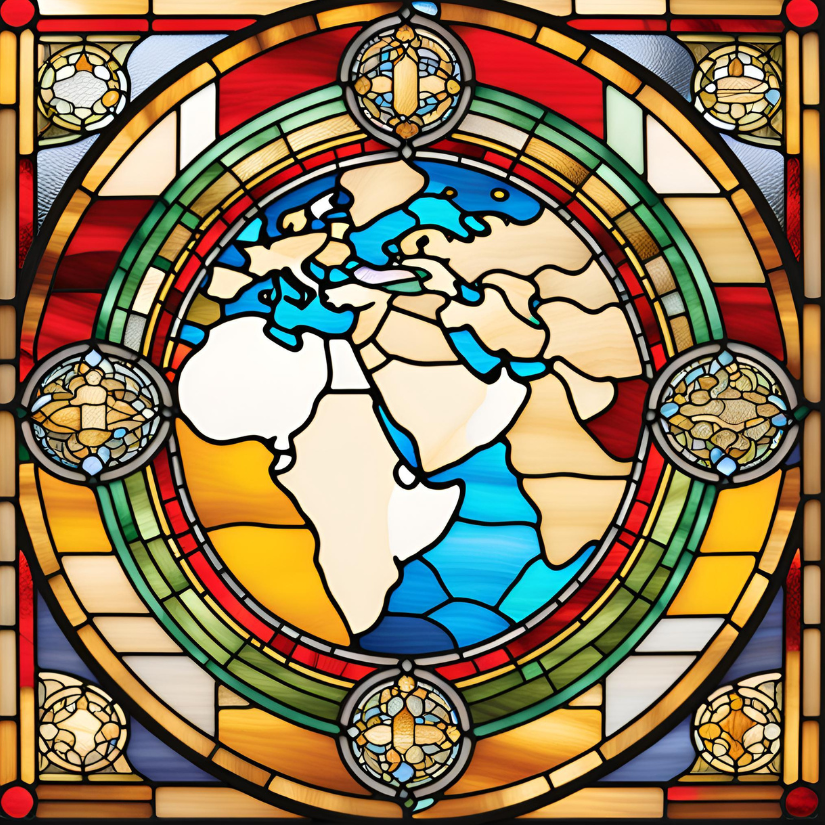Europe and the West often look down on the Middle East, viewing it through a lens of stereotypes and misconceptions. To many in the West, the region is seen as backward, plagued by violence, and dominated by a religion—Islam—that they neither understand nor care to learn about. The Middle East is frequently reduced to a caricature of terrorists and oil sheikhs, while its rich history, diverse cultures, and contributions to civilization are ignored. Few Westerners speak a word of Arabic, yet nearly every educated Middle Easterner speaks English or French and has a fundamental understanding of European history. This imbalance reflects a deeper ignorance about how the Middle East has been shaped by centuries of colonial meddling and modern power politics. When the topic of Western interference is brought up —be it the Sykes-Picot Agreement, CIA-backed coups, or the Iraq War—many Westerners dismiss it as arab conspiracy theories, as they have never heard about it, and they deem it impossible that a mere Middle Easterner possesses relevant information which they, the morally superior, pseudo-educated Europeans, have never heard about. The Westerners, who do know about such things tend to be communist ideologues, supporting absolutely anything as long as it’s anti-American, even when it means justifying Russian war crimes. Oh well!
It’s a tough task to break through these barriers of ignorance and prejudice, but let’s try once more to shed light on how the Middle East has been played by the West.

A Broken Promise: How the West Betrayed the Arabs After World War I
The Sykes-Picot Agreement: Dividing the Middle East
During World War I, the British, through figures like T.E. Lawrence—better known as Lawrence of Arabia—courted Hussein bin Ali, the Sharif of Mecca and King of Hejaz, to rise up against the Ottoman Empire, which had ruled the region for centuries. The British promised the Arabs independence in exchange for their support in defeating the Ottomans. Inspired by the prospect of self-rule, Arab tribes rallied to the cause, playing a crucial role in the Allied victory. However, once the Ottomans were defeated, the British and French reneged on their promises. Instead of granting independence, they divided the Middle East among themselves through the Sykes-Picot Agreement of 1916. The region was carved into arbitrary states, with little regard for its traditional realities.
To maintain control, the British and French installed puppet monarchs who were dependent on their colonial supervisors. If they became too independent, like Faisal I, King of Syria, they were replaced. Faisal I was then installed as King of Iraq, as the British deemed him a “local” who could be controlled. Meanwhile, another prince from the Hijaz, Abdullah I, felt left out of the colonial spoils. To placate him, the British carved out a new country from the desert—Transjordan, later known as Jordan—and made him its ruler. These artificial states and their foreign-imposed monarchs were designed to serve Western interests, not the aspirations of the local populations. It’s no surprise that these regimes faced widespread resentment and instability, laying the groundwork for decades of conflict and upheaval in the Middle East.

The Balfour Declaration: Seeds of Conflict in Palestine
In 1917, the British government issued the Balfour Declaration, expressing support for the establishment of a “national home for the Jewish people” in Palestine, in return for financial support from wealthy Jewish banker Walter Rothschild to fund Britain’s war expenses in World War I. How could they promise land that wasn’t even theirs in the first place? Well, as you read above, they had already planned to claim it for themselves. This set the stage for the never-ending, disastrous Israeli-Palestinian conflict. The British, who eventually controlled Palestine under a League of Nations mandate, later increasingly became victims of Israeli terrorist groups like the Irgun and Lehi, who saw them as a colonial power. British politicians, hesitant to engage in armed conflict against jewish people so soon after the Holocaust atrocities committed by the Germans in World War II, simply left Palestine. The consequences of this decision are still felt today, as the region remains embroiled in violence and instability. Thank you, guys…
Puppet Regimes and CIA-Backed Coups
The Cold War era saw the United States and its allies actively intervene in the Middle East to counter Soviet influence and secure access to oil resources. One of the most infamous examples is the CIA-backed coup in Iran in 1953. The democratically elected Prime Minister, Mohammad Mossadegh, was overthrown after he nationalized the Iranian oil industry, challenging British and American interests. The Shah, Reza Pahlavi, was reinstalled as a Western-friendly dictator, whose oppressive rule eventually led to the 1979 Iranian Revolution and the rise of the Islamic Republic. (Yes, that’s why even reasonable and educated Iranians initially supported a “theocracy”—because the alternative was a Western-backed dictator.)
Similarly, in Syria, the West has repeatedly attempted to influence the political landscape. During the 1940s and 1950s, the CIA and British intelligence supported various coups and counter-coups to ensure the dominance of pro-Western factions. These interventions destabilized the country and contributed to the rise of authoritarian regimes. That’s how Syria ended up with the butcher Assad dynasty and, eventually, a transitional government with terrorist roots. God bless Syria!

The Iraq War: A War Based on Lies
The 2003 invasion of Iraq by the United States and its allies is one of the most egregious examples of Western manipulation in the Middle East. The war was justified on the grounds that Iraq possessed weapons of mass destruction and had ties to terrorist organizations like al-Qaeda. Both claims were later proven to be false. Most Americans still believe the war in Iraq was a response to the 9/11 attacks, which Iraq had absolutely nothing to do with. (Osama bin Laden was a Saudi national residing in Afghanistan and Pakistan.) The real motivations for the war were rooted in geopolitical strategy and control over Iraq’s vast oil reserves. The invasion led to the toppling of Saddam Hussein, but it also unleashed chaos, sectarian violence, and the rise of extremist groups like Daesh (the so-called “Islamic State”). The human cost of the war was staggering, with hundreds of thousands of Iraqis killed and millions displaced.
Egypt: Welcoming the Sisi Coup
In 2013, the Egyptian military, led by General Abdel Fattah el-Sisi, overthrew the democratically elected government of President Mohamed Morsi. The coup was half-heartedly denounced but very quickly welcomed by Western powers, particularly the United States, which continued to provide military aid to the Sisi regime despite its brutal crackdown on dissent. The Sisi government has since been accused of widespread human rights abuses, including the imprisonment and torture of political opponents. Funny how the West supports democracy so selectively… To Iraq, they bring “democracy”; to Egypt, they bring dictatorship. Makes perfect sense…

A Legacy of Intervention
These were just a few examples. While Middle Eastern governments are often of questionable quality indeed, it is clear that Western powers have played a significant role in shaping its troubled present. Still wondering why Middle Easterners are upset and why Western “liberalism” doesn’t seem credible to them? I would love for the Middle East and Europe to join forces, but Europe needs to get off its high horse and face historic realities.





